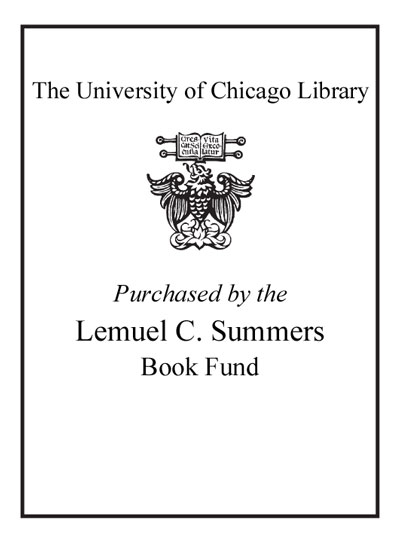The making and unmaking of technological society : how Christianity can save modernity from itself /
Saved in:
| Author / Creator: | Jardine, Murray, 1954- |
|---|---|
| Imprint: | Grand Rapids, Mich. : Brazos Press, 2004. |
| Description: | 304 p. ; 23 cm. |
| Language: | English |
| Series: | The Christian practice of everyday life Christian practice of everyday life. |
| Subject: | |
| Format: | Print Book |
| URL for this record: | http://pi.lib.uchicago.edu/1001/cat/bib/5149694 |
Table of Contents:
- Preface
- Acknowledgments
- Introduction: Technology, Morality, and Christianity
- Part I. The Evolution and Crisis of Modern Technological Societies
- 1.. The Evolution of Liberal Capitalist Democracy
- 1.1. Liberalism, Conservatism, Capitalism, and Democracy
- 1.2. Classical Liberalism, Reform Liberalism, and Neoclassical Liberalism
- 2.. Classical Liberalism and the Early Industrial Economy
- 2.1. The Political Theory of Early Liberalism
- 2.2. Property and Distributive Justice
- 2.3. Economics and the Market
- 2.4. Religion and the Paradox of Tolerance
- 2.5. The Ambiguities of Classical Liberalism
- 3.. Reform Liberalism and the Late Industrial Economy
- 3.1. The Crisis of Classical Liberalism
- 3.2. The Political and Economic Theory of Early Reform Liberalism
- 3.3. Morality and Distributive Justice in Later Reform Liberalism
- 3.4. The Dilemmas of Reform Liberal Technocracy
- 4.. Neoclassical Liberalism and the Postindustrial Economy
- 4.1. The Crisis of Reform Liberalism and the Rise of Libertarian Politics
- 4.2. The Development of Global Consumer Capitalism
- 4.3. The Political and Economic Theory of Neoclassical Liberalism
- 4.4. The End of Liberalism
- 5.. The Crisis of Liberal Capitalist Democracy
- 5.1. Individualism and Tyranny
- 5.2. Totalitarian Tyranny in the Twentieth Century
- 5.3. Consumerism and the Brave New World
- 5.4. The End of Consumerism
- 5.5. The Crisis of Liberalism in Historical Context
- 5.6. Market and Society
- 5.7. The Internal Logic of Liberalism
- Part II. Christianity and Its Relation to the Modern Crisis
- 6.. Society before Christianity: The Ancient Pagan World
- 6.1. Orality, Literacy, Myth, and Truth
- 6.2. The Cosmos
- 6.3. The Human Condition
- 7.. Morality before Christianity: Classical Greek Rationalism
- 7.1. Socrates, Plato, and Aristotle
- 7.2. Aristotle's Analysis of Personal Fulfillment
- 7.3. The Political Community
- 7.4. The Structure of Moral Reasoning and Action
- 7.5. The Limits of Aristotle's Ethical Theory
- 8.. The Cosmological and Anthropological Revolution of the Biblical Narrative
- 8.1. Understanding the Bible
- 8.2. The Personal Word of God
- 8.3. The Structure of Reality and Modern Science
- 8.4. The Garden of Eden and Human Faithfulness
- 8.5. Abraham and the Human Place
- 8.6. The Politics of Faithfulness
- 8.7. The Word Made Flesh
- 8.8. The Promise and Peril of Christianity
- 9.. The Origins of the Modern Crisis in Christianity's Political Failure
- 9.1. Christianity and Social Order in Late Antiquity and the Middle Ages
- 9.2. The Reformation and Its Aftermath
- 9.3. Radical Human Creativity and Twentieth-Century Politics
- 9.4. The Trajectory of Modernity
- 10.. Contemporary Responses to the Modern Crisis
- 10.1. Postmodernism and Neoclassicism
- 10.2. Speech and Social Order
- Part III. The Christian Response to the Modern Crisis
- 11.. Constructing Christian Community I: Speech and the Human Place
- 11.1. Aspects of Oral, Literate, and Electronic Image Cultures
- 11.2. Speech and Place
- 11.3. Places of Speech
- 11.4. Place in Practice
- 12.. Constructing Christian Community II: Physical Place, Work, and Death
- 12.1. Physical Place and the Design of Cities
- 12.2. Restructuring Work
- 12.3. Aging and Death
- 12.4. Toward a New Social Order
- Conclusion: Christianity, Technology, and Human Destiny
- Notes
- Recommended Readings

